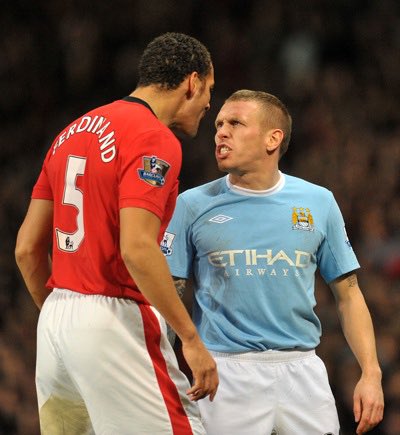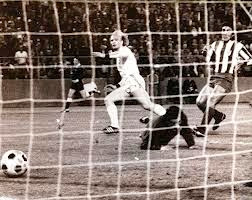"It shows in compelling fashion their remarkable strength in depth ,,, and also raises questions about how competitive this league really is..."
These not the words of an overheating Arsenal TV member on their way out of the Etihad two hours after drawing Churchillian bluster to entice their team over the finishing line, but instead of Dan Roan, BBC Sport's Editor and the 2021 Journalist of the Year.
That we are experiencing the Bundesligafication of the Premier League or, as the Independent's Miguel Delaney put it, "it's just like Ligue Un".
Et ils ne plaisant pas.*
Firstly, City have one of the thinnest squads in the Premier League. En route to reeling in season-long leaders Arsenal on a budget trimmed so much that City no longer feature in the top 20 net spending clubs in Europe since 2018, they have used a small but cohesive number of well drilled professionals. Well-drilled, well chosen, well tutored. When it comes to the pointy end of the season, Manchester City know what they are doing, know who they need doing it and know when they have to perform.
This kind of big match experience doesn't come easy of course. Scrolling back to 2010 and City's initial attempts to rid themselves of 40 barren years of struggling to live up to their occasionally successful past, there were plenty of occasions where experience, or a lack thereof, was the deciding factor against them.
Defeat to a still-crowing Manchester United in the semi finals of the 2009-10 League Cup over two tempestuous legs and losing out to Tottenham in the race for the final Champions League place spring readily to mind.
 |
| 2009-10 League Cup semi final 2nd leg. dominant United deal with upstart City to progress to the final |
Since then, things have taken off somewhat. With a massive influx of cash from Abu Dhabi, a beginning was made to mounting an assault on the very well defended ramparts of the Top 4 (Manchester United, Chelsea, Arsenal and Liverpool), a group who had had it their own way almost uninterrupted for three decades. That this could only be done by spending vast amounts of money was a fact that, at the time, nobody denied. In fact there was a frisson of excitement similar to that which met Chelsea's arrival at the top table, funded at first by Mathew Harding's largesse then by the oil billions of Roman Abramovich. Upsetting the applecart was by and large seen as a good thing.
But you can of course have too much of a good thing. Fast forward a decade and we have a new status quo which is causing more pain and stress than any frisson of excitement that might have been felt in the early days of challenge.
City, to the surprise of all who said Sheikh Mansour would grow bored with his plaything, that throwing money at a project was just like the lottery winner gassed up on cheap champagne and not to worry, United would reclaim their perch from these noisy neighbour upstarts soon enough, have got stronger and stronger. Those critics were forgetting one thing and misjudging another, however. Succession problems at Old Trafford meant trying to replace the irreplaceable (an issue City themselves will face on Guardiola's departure) is nigh on impossible. The end of the cycle of domination was nigh, but what a cycle it had been (see table below).
Taking the different eras into account, it is clear that the profound worry of some at the present predicament is premature, or, if not, out of proportion. The first of the tables below show quite clearly that the domination City currently exhibit pales in comparison with that of Liverpool and United during their own much vaunted periods in the ascendency, when little was written about competitive balance, financial doping, Bundesliga woes and the strange whiff of Paris St Germain.
 |
| We come to praise |
Misjudgement of just how professionally the long term project at City would be handled was also rife and widespread. None of the willy-nilly crash and burn politics of Chelsea or the desperate overspending of United and Liverpool on any players that shone brightly for twenty minutes. Here was a rock solid plan, well researched, properly constructed and funded, with the right people in the right places, highly tuned professionals who knew how to put coherent strategies into working order. Ed Woodward it was not.
City's development on the pitch has progressed carefully through the canny strategies of Roberto Mancini, via the exuberant poetry of Manuel Pellegrini to the arch plotter himself, Josep Guardiola. Nothing has been left to chance. Player recruitment too has been the subject of proper due diligence from day one. The mala leche that Johan Cruyff so desired to shake up his Barcelona pot (he brought in Stoichkov and Romario) has balanced the good solid pros. For every Tevez, a Zabaleta, for every Balotelli a Kompany, for every Bellamy a Barry and so on. Add the little recognised brilliance of David Silva (Ferguson "They thought they were buying David Villa"), Yaya Toure, Kevin de Bruyne, the 60 million pound flop, and you can see that City have seen something others have not.
It has reaped surprisingly rich rewards. City have won 17 trophies since 2010, quite the turnaround from the 1976-2010 potless abyss. 26 Wembley visits in that time speak for themselves, and to a degree the reason for an occasional lack of enthusiasm for extortionate trips down south these days.
If City manage to overhaul Arsenal in the finishing straight it will mark their 5th title in six seasons. The alarm bells that have been ringing for a while now, will ring themselves to a standstill. Those trying to persuade us that there is now a concomitant lack of competitiveness in English football will produce these bald statistics. Well, we all know what we can do with statistics to make a case.
The fact is four of City's six title have been won on the final day of the league season. That is, after ten months of infernal struggle, it has come down to the last day. and in two heart-wrenching cases, the final kicks of the season to decide who won. City have won these titles by nil, one, one and two points respectively, hardly a case of a juggernaut steaming away with only flattened Arsenals and Liverpools in their giant treadmarks.
Debunking other people's worries is one thing. Reminding the same people that the domination perpetuated by Liverpool and Manchester United in previous cycles was a lot worse, is another. In nine years of the 90s Manchester United won seven Premier League titles and were lauded to the rafters for their excellence, their haughty dominance under Roy Keane and Paul Scholes, the bargain buys Van Nistelrooy, Cole and Yorke. Their exploits became legend, their players unforgettable Premier League icons. There was not a single feather ruffled by anyone suggesting this domination might not be a good thing. people were far too busy excitedly gobbling up the spectacle of David Beckham's twirling free kicks and Ryan Giggs' extravagant jungle of chest hair. They were truly the glory days.
 |
| The Glory Years |
City's domination of the Premier League in recent times is not nearly as iron-cast. For all their well-planned excellence, they have worthy challengers close in their wake. This year Arsenal, in recent times Liverpool, Chelsea, Leicester and others. The quest for ever-improving standards has brought the challengers into a new bracket too. In order to challenge, the likes of United and Liverpool have had to tighten their own operations and improve. This they have done or are in the process of doing, leaving us with a top level to the Premier League which is of the highest order.
That City are currently the best of the field is the cycle we are in right now. It will not last, neither will it, or does it, herald the last rites of competitiveness in the Premier League. A cursory glance at the facts will confirm this for anyone who wishes to know.
Much has also been made of the prospect of City winning three titles in a row, a kind of holy grail that only Huddersfield, back in the mists of time, Liverpool, United and Arsenal have managed. If it comes to pass, it will not be met by the same high praise City's predecessors rightly received, but by a wall of opprobrium and yet more cries that our national game is ruined.
And David May, for one, will not be hosting a barbecue.
 |
| When City's presence was tolerable |
* they're not joking
















.jpg)

